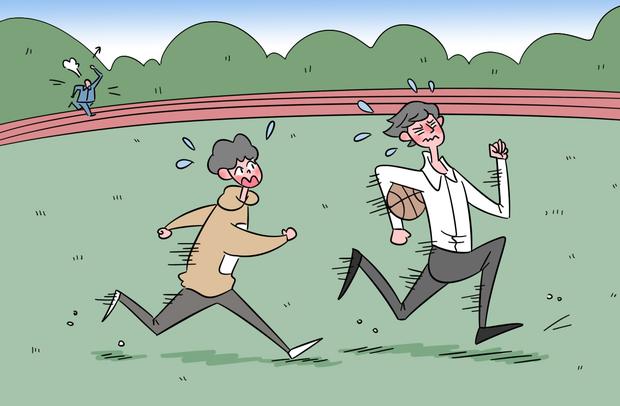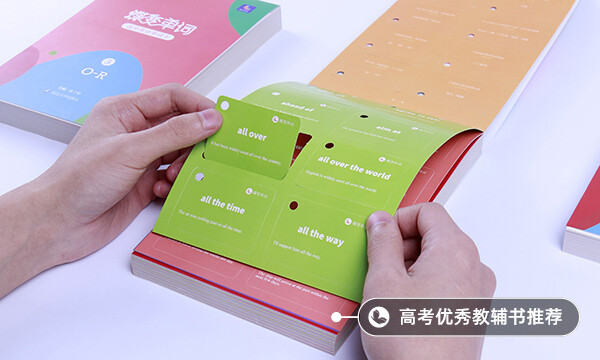状语从句的类型和用法都有什么
2021-10-23 08:36:59文/崔芮淇状语从句即指在主从复合句用作状语的从句。按照其意义,状语从句可分为时间状语从句、地点状语从句、原因状语从句、目的状语从句、结果状语从句、条件状语从句、让步状语从句等。

状语从句的类型
状语从句的分类:
(1)时间状语从句
凡是从句都必须有引导词,引导时间状语从句的词有when,before,after,until,as soon as,while 等。
(2)条件状语从句
主要看一下由if引导的条件状语从句。if 意为“如果”,引导条件状语从句时,表示假如有从句的动作发生就(不)会有主句的动作发生。例如:
If it doesn't rain tomorrow,we will go there by bike.如果明天不下雨,我们就骑自行车去那里。
If I get there early,I can see the doctor quickly.如果我早早地到那里,我就可以快点看病。
(3)地点状语从句用法要点
常用where(哪里)和wherever(无论哪里)eg.
Where there is a will,there is a way. 有志者,事竟成。
We will go wherever the motherland need us most. 我们要到祖国最需要的地方去。
(4)原因状语从句用法要点
常用的引导连词有because,as和since,三者的区别是:在回答问题的时候,使用because;对于显而易见的原因,常用as或since;as和since的从句常放在主句之前,而because的从句常放在主句之后。eg.
Why did you go? I went because Tom told me to go. 你为何去?那是因为汤姆叫我去。
He was angry not because we were late but because we made a noise.
他很生气不是因为我们来迟了,而是因为我们弄出了声音。
As it was raining hard,we had to be indoors. 由于雨太大,我们只好呆在家里。
Since you feel ill,you'd better not go to work. 既然你感觉不舒服,你最好不要去上班了。
(5)目的状语从句用法要点
常用的引导连词有so that,that和in order that译为:以便,为了,目的是。eg.
Please speak more slowly so that we can make full notes. 请讲慢一点,以便我们能作详细笔记。
I shall write down your address that I may not forget. 我要把你的地址记下来,以免忘记。
I sent the letter by air mail in order that it might reach him in time. 这封信我以航空信发出,以便他能及时收到。
注:目的状语从句可以用动词不定式来替换做目的状语。eg.
We work harder than usual finish it in a week. 我们比平常加倍努力工作以在一周内完成工作。
条件状语从句语法引导条件状语从句最常用的连词是if,由if引导的条件状语从句表示在某种条件下某事很可能发生。如:
1) If you ask him,he will help you.
如果你请他帮忙,他会帮你的。
2) If you fail in the exam,you will let him down.
如果你考试不及格,你会让他失望的
if引导的条件状语从句既可以将从句放前面也可以将从句放后面
(如果天下雨,我们就不玩了)If it rains,we will stop playing.'转为We will stop playing if it rains.
if引导的条件状语从句另外,if从句还表示不可实现的条件或根本不可能存在的条件,也就是一种虚拟的条件或假设,从句多用一般过去时或过去完成时。如:If I were you,I would invite him to the party.如果我是你,我会邀请他参加聚会。I would have arrived much earlier if I had not been caught in the traffic.如果没有堵车,我会到的早一点儿。
其他连词引导条件状语从句:
1、unless conj.除非,若不,除非在……的时候
You will fail to arrive there in time unless you start earlier.如果你不早点动身,你就不能及时赶到那儿。
Unless it rains,the game will be played.除非下雨,比赛将照常进行。
2、on condition(that)...在……条件下,如果 on condition (that)...引导的条件从句是主句事件发生的前提条件或唯一条件。
I can tell you the truth on condition that you promise to keep a secret.我可以告诉你真相,条件是你答应保密。
You can go swimming on condition (that) you don't go too far from the river bank.你只有在不远离河岸的条件下才可以下水游泳。
3、supposing conj.如果,假如 supposing引导的条件从句表示一种假设条件。
Supposing it rains,shall we continue the sports meeting?倘若下雨,我们的运动会还要继续举行吗?
Supposing anything should go wrong,what would you do then?假如出了什么问题,你准备怎么对付?
4、provided conj.假如,除非,以……为条件 provided (that) +从句表示一种假设条件。
He will sign the contract provided we offer more favorable terms.如果我们提出更优惠的条件,他就会在合同上签字。
He won't be against us in the meeting provided that we ask for his advice in advance.如果我们提前征求一下他的意见,他就不会在会上反对我们。
从上述例句可以看出if,unless,on condition (that),supposing,provided等词引导的条件状语从句,主从句条件关系分明,结构清晰。
但有些句子,虽没有含条件关系的连词,却也隐含着条件关系,这些句子常用一些词,如but for,without等引出一个介词结构来表示条件,条件应该是虚拟的,或与事实相反的假设。
如:but for若非,要不是
But for the rain,we should have a pleasant journey.
要不是下雨,我们的旅行肯定会很愉快。
But for your help,we should not have finished in time.
要不是你帮忙,我们肯定不能及时完成任务
经典语句:If it dosen't rain tomorrow,we will go to the zoo.
If you open the door,i will come in.
条件状语从句就是用以表示"在某种条件下,会……"常用if,in case,on condition等词来引导
连接词主要有 if,unless,as/so long as,on condition that,provided,suppose,supposing 等..
主句用一般将来时,if或unless引导的条件状语从句用一般现在时。
【注:在条件状语从句中,绝大数情况下some要变为any。】
条件状语用法
unless = if...not.
e.g. Let's go out for a walk unless you are too tired.
If you are not too tired,let's go out for a walk.
if 引导的条件句有真实条件句和非真实条件句两种:
真实条件句
如:If it rains tomorrow,we won't go on a park
非真实条件句是虚拟语气的一种,表示与事实相反,如:
If I were you,I would go with him.
so/as long as只要
由as (so) long as,in case引导。
So long as you're happy,it doesn't matter what you do.
只要你高兴,你做什么都没有关系。
You may borrow my book as long as you keep it clean.
只要你保持书的清洁,你就可以把我的书借去。
Take your umbrella in case it rains.
带着你的伞吧,以防下雨。
主句与从句时态一致的问题。
在时间状语从句和条件状语从句中,主句和从句之间的时态一致问题一般分下列两种情况:
1. 若主句是祈使句,或主句中有情态动词,或主句中谓语动词是一般将来时,那么从句用一般现在时表示一般将来时。例如:
Be careful when you cross the road. 过马路时要小心。
Put up your hand if you have any questions to ask. 如果你们有问题要问的话,请举手。
The traffic must stop when the lights are red. 红灯亮时,车辆必须停下。
2. 若主从句谓语动词都是陈述过去,那么主从句都可以用一般过去时。例如:
She could sing when she was four years old. 她四岁的时候就会唱歌。
注意:在含有条件状语从句的复合句中,表示将来时态,主句是一般将来时态,祈使句或情态动词,从句要用现在时态,[主将从现原则](主将从现,将并非指将来时,还指表示将来含义的,跟着if后的那句话是从句。
 记英语单词的好方法有哪些 如何学好英语
记英语单词的好方法有哪些 如何学好英语记英语单词的好方法一般有音义联想(汉语外来词谐音记...
2021-10-22 如何学好高中英语 提升英语水平的方法
如何学好高中英语 提升英语水平的方法高中英语一定要打好基础,单词、听力、阅读和作文都要...
2021-10-22 2021年12月四级英语考试时间 什么时候考试
2021年12月四级英语考试时间 什么时候考试2021年下半年英语四六级笔试时间是12月18日,...
2021-10-21 英语学习软件排行榜 实用英语app有哪些
英语学习软件排行榜 实用英语app有哪些英语作为国际语言自然备受追捧。能学好英语,你便比别...
2021-10-21 英语写信格式模板 英文书信怎么写
英语写信格式模板 英文书信怎么写英语作文经常会考到书信,书信是有格式要求的,下面是...
2021-10-21 成考英语70分蒙题技巧 有哪些答题技巧
成考英语70分蒙题技巧 有哪些答题技巧很多考生不擅长英语科目,那么在成人高考英语科目的考...
2021-10-21 高中英语换日语后悔了 日语参加高考的利弊
高中英语换日语后悔了 日语参加高考的利弊为什么有人说高中英语换日语后悔了?无非就是因为高中...
2021-10-20 英语介词有哪些 常用英语介词总结归纳
英语介词有哪些 常用英语介词总结归纳常用的英语介词in,on,with,by,for,...
2021-10-20 英语中五个变得的区别
英语中五个变得的区别turn用于颜色较多;grow用于有生命的;go经...
2021-10-20 英语疑问句分为哪几种类型
英语疑问句分为哪几种类型英语疑问句的种类有4种: 一般疑问句;特殊疑问句;...
2021-10-20 be made of与be made from的区别
be made of与be made from的区别be made of,由……制成,能看出原材料,而...
2021-10-20 ten-year-old和tenyearsold的区别
ten-year-old和tenyearsold的区别ten years old意思是:10岁大,用法上...
2021-10-20 would you like和do you like的区别
would you like和do you like的区别意思不同。would you like的意思是你想...
2021-10-20 be happy 可以单用吗
be happy 可以单用吗可以。be happy可以单独使用,当祈使句用:B...
2021-10-20 英语四级词汇量是多少 如何复习
英语四级词汇量是多少 如何复习大学英语四级考试大纲规定:四级考试需掌握词汇量42...
2021-10-19
点击查看 高中英语语法 更多内容









